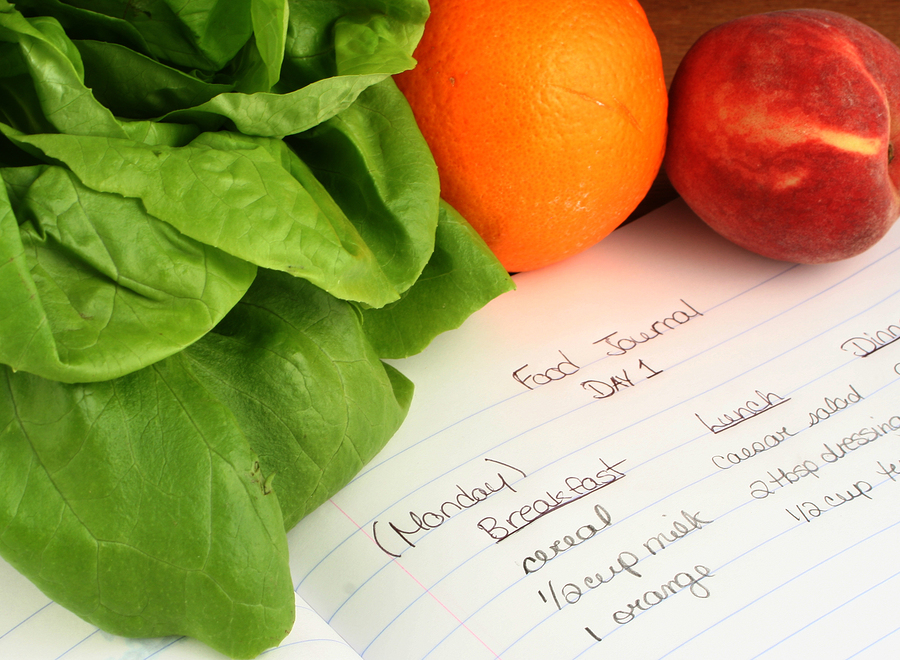How to keep an IBS diary
Keeping track of your symptoms can be a useful tool in managing IBS
Irritable Bowel Syndrome (IBS) is one of the most common gastrointestinal conditions, affecting up to 20% of people in the UK.
Even though it is so common the cause is not fully known but symptoms such as abdominal pain, bloating and instances of constipation and/or diarrhoea can have a really negative impact on someone’s quality of life.
A helpful way of managing the condition can be to keep track of your symptoms. Some people diagnosed with IBS find it hard to see any pattern in their symptoms although it has been reported that stress or certain foods can make them worse. By keeping a symptom diary you will be able to gain a better understanding of what triggers a flare up for you and so be able to pro-actively manage your condition.
As it can be a combination of diet, stress and medication that may trigger a flare-up we suggest that you keep a log of these five main things on a daily basis:
- What you have been eating (your diet)
- Your pain
- Your bowel movements
- Any medication you may have taken
- How you are generally feeling that day
If you keep this log over the course of four weeks then it should be able to highlight any obvious triggers which you will then be able to share with your GP in order to find the right treatment for you.
Monitor your diet
A British Society of Gastroenterology study reported that 50% of people with IBS found their abdominal pain started within 90 minutes of having eaten a meal. It was concluded that this was likely to be due to an increase in sensitivity within the digestive system and was especially linked with eating fat.
However, there is no standard diet for IBS sufferers so as you must find the diet that most lessens your symptoms it is important to take note of what you are eating.
The essential daily things to note include:
- If your food was freshly cooked or reheated, whether it was fried or baked
- Was your meal pre-made or cooked from scratch?
- How many fruit and vegetables you have eaten
- Your fat and sugar consumption – there are apps you can use to help you monitor these more easily
- What you drink – it’s possible that certain drinks may be triggers such as coffee, tea or sugary drinks
Monitor your pain
One of the defining characteristics of IBS is reoccurring pain that lasts for at least three days in a month, so it is very important to write down any pain you may be experiencing on a daily basis.
Try and note the following:
- Whether the pain is constant or if it is different at certain times of the day
- Where is the pain? Is it in one area of your abdomen or throughout?
- Describe the pain – is it cramping, burning, sharp, dull or anything else?
- Do you have pain elsewhere such as backache or a headache?
Monitor your bowel movements
You may find that irregular bowel movements (such as constipation or diarrhoea) come and go or for some people, they are always present.
It is important to note down:
- How many times you have opened your bowels that day
- Was it difficult? How urgently did you need to go?
- Was there any abdominal pain beforehand? Did the pain decrease afterwards?
Monitor your medication
Certain medicines such as antibiotics or those containing sorbitol may adversely affect the colon which can lead to constipation or diarrhoea. So if you are taking medication (not including bulking agents, antimotility drugs or antispasmodics) then it is important to record the following:
- The name of the medication and why you are taking it
- The time you take the medication
- If there are any side effects
- Are you also taking vitamins or any complementary therapies including herbal remedies or acupuncture?
Monitor your mood
How you are feeling can have an impact on your bowel. People with IBS tend to be very sensitive to stress and anxiety.
Try and closely monitor the following:
- If you are having any stressful issues that day
- Did your IBS flare up when you were feeling stressed?
- Were you feeling anxious about your IBS that day?
Keeping a daily diary which includes these five areas of observation will enable you to identify any patterns and therefore better manage your condition. It is important to keep your log for at least four weeks to get the most accurate picture. By keeping a diary you should be able to recognise which foods or which situations may trigger a flare up and therefore reduce the amount that occur.
Try some simple tricks to manage your stress.
Read more on Irritable Bowel Syndrome – NHS
Disclaimer
All content on Silversurfers.com is provided for general information only, and should not be treated at all as a substitute for the medical advice of your own doctor or any other health care professional. Silversurfers will not be responsible or liable for any diagnosis made by a user based on the content on www.silversurfers.com and we are also not liable for the content of any external websites or links from or to Silversurfers to any other websites. Please always consult your own doctor if you’re in any way concerned about any aspect of your health
Melina - Assistant Editor
Latest posts by Melina - Assistant Editor (see all)
- 4 Homemade Sweet Treats for Easter - April 10, 2025
- Bowel Cancer Awareness Month : know the signs - April 5, 2025
- Playground Memories - March 10, 2025
- Banana bread with SunGold kiwis - February 20, 2025
- A tribute to Bob Marley - February 4, 2025




















